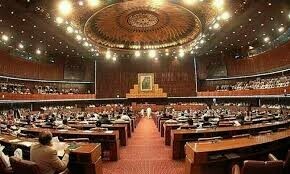ISLAMABAD: The Norwegian Church Aid (NCA) launched a 3-year project that aims to end violence against women and girls in 150 villages in Mansehra District in Khyber Pakhtunkhwa and Mirpurkhas and Shaheed Benazirabad districts in Sindh.
The project is funded by the European Union and the implementing partners are Khwendo Kor (KK) and South Asia Partnership Pakistan (SAP-PK). In addition to addressing domestic violence, the project will also tackle women’s right to inheritance and consent in marriage.
“Violence against women and girls is a global problem, cutting across countries and classes, said Hanna Mollan, Country Representative, NCA. As a faith-based organization, NCA works with religious leaders from all sects and faiths in Pakistan and religious leaders who are important allies in improving safety and respect of women.
Ms Mollan said antagonism between religious leaders and organisations working for women’s empowerment, is counterproductive. An important aspect is mapping of the duty bearers in positions of power, such as religious leaders, who are paid salaries by the state.
New 3-year project aims to utilise position of imams in rural communities
A Muslim religious leader from Mansehra, Sadiq Sherazi, shared his experience of promoting women’s rights in his community. He said he received threats from individuals and organizations. “Early marriages, forced marriages and denial of women’s rights of inheritance are endemic problems in my Union Council. But since Khwendo Kor began working in the area, things are slowly improving,” he said.
Narrating an incident, he said “There was a religious leader in my village who had not given his sisters their rightful share in the family property. We repeatedly spoke to him on the issue until he transferred ownership of some land to his sisters and in the next Friday sermon he said that he had obeyed God’s law.”
He said community action and persistently challenging harmful traditional values and practices are key to gradual changing the mindset of communities.
Shabana (full name withheld), a survivor of violence, was forced into marriage at the age of 16. Her husband was a drug addict and Shabana was forced to put up with his abuse. For 18 years she provided her children and herself for before she was able to leave her husband and move back to her parents. She said, “When these organizations started working in my area, I could not even speak to the workers. Today, with their support, I am able to speak at this forum. I have found my voice as a result of the wonderful work they do.”
Maryam Bibi, Executive Director of Khwendo Kor, said, “Empowerment comes from within, individually and collectively. The issues of violence against women are very sensitive and addressing them becomes much harder in conservative communities. We need experience, commitment and the faith. Successes such as Shabana give us the courage to carry on.”
She added, “It is worrying that development discourse avoids religious leaders and organizations when they often pivotal power holders in communities. This project is truly inclusive. We acknowledge the power of the imams and convince them to use their forums and spaces to support women’s rights.”
Zoë Leffler, European Union Development Advisor on Human Rights and Gender said, “Domestic violence is a global issue with 12 to 35 percent of women in Europe experiencing domestic violence. However, the difference lies in whether there are consequences for the perpetrators and whether the survivor has a place to go to for support. In many places in Pakistan, domestic violence is still considered a private matter and women are trapped in violent situations. We are determined to help bring about a change in attitudes, facilitate implementation of laws and foster the affirmation that women have rights.”
She added, “Globally, the realization has taken root that societies cannot develop while leaving half their population behind. Smart economics include women.”
The ceremony ended with an address by Zubaida Khatoon, former Chairperson of the KP Provincial Commission on the Status of Women and a member of the Board of Directors of Khwendo Kor. She said that the prevalence of gender based violence in Pakistan is unfortunate but there is a growing recognition that it is a crime. She added that the government is beginning to realize the importance of this work and also shared news that the KP government has approved a policy that aims to empower women of the province.
Published in Dawn, February 20th, 2015
On a mobile phone? Get the Dawn Mobile App: Apple Store | Google Play












































Dear visitor, the comments section is undergoing an overhaul and will return soon.